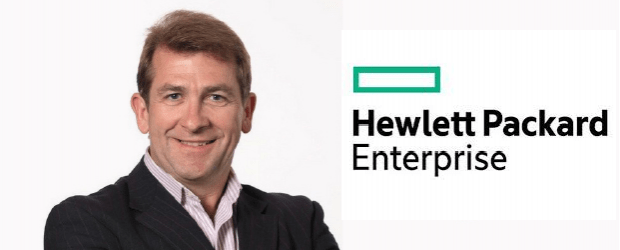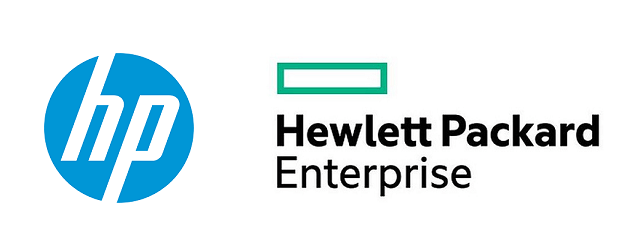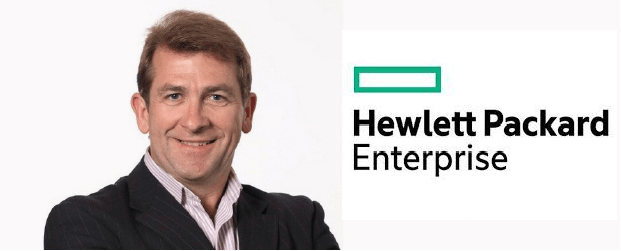TORONTO – Come November 1, Hewlett Packard Enterprise plans to make cloud a focal point of its digital transformation strategy. HPE Canadian officials told CDN the new company plans to concentrate on four areas.
They are:
- Transformation to a hybrid infrastructure, which will be centered on cloud;
- Protection of digital enterprises, which will have a heavy focus on security;
- Empowering the data driven organization that will be the company’s big data and analytics play; and
- Enabling workplace productivity that will look to address mobility.
While Canadian leader Charlie Atkinson said all four will have equal importance, the hybrid IT area centred on cloud computing will be looked upon to address the digital transformation of business today.
“With Hybrid IT, customers running in traditional mode now have an opportunity to go digital. We have the organizational reach and innovative power to deliver it to customers with enterprise services and software even in an era of economic challenge with our Canadian dollar,” he said.
Atkinson added that hybrid IT and the digital transformation is something core to the HP separation. The company plans to perform its own digital transformation and wants to showcase the results as a foundation to help customers.
Bobby Patrick, chief marketing officer of HP Cloud, said the cloud business’s flagship Helion is currently growing at 20 per cent.
“Cloud is a big part of the digital transformation. Our view is different than AWS (Amazon Web Services) and is enterprise-based. Customers acknowledge that they have legacy equipment and want a way to take their apps to the cloud. The focus will be on security and helping them transform to new cloud apps run in the same environment,” Patrick said.
The Helion portfolio currently includes CloudSystem and newly enhanced managed cloud service with hypervisors such as Hyper-V Red Hat KVM and vSphere from VMware. It also includes bare metal deployments. Helion maybe different than AWS, as Patrick noted, but it can support various clouds such as AWS, Microsoft Azure and OpenStack.
The Helion Eucalyptus solution offers a single pane view of SAP workloads for example along with other multiple private clouds.
Patrick added that come November 1, one of HPE’s goals is to create a developer culture for the cloud.
Patrick said that one of the big advantages HPE has with its cloud plan is they have a huge channel network. “They too have to transform themselves and skill-up. It’s different selling a server and working in the cloud.”
HPE plans to focus its go-to-market attention on the C-suite level instead of IT departments because Patrick believes that’s where the transformation decisions are happening.
Before the separation announcement, HP developed the Cloud Builder program to help the channel address the digital transformation with special training from HP. Currently there are 160 worldwide solution providers in the Cloud Builder program including Canadian companies such as Long View Systems of Calgary and Carbon 60 Networks Inc. of Toronto.
Cloud Builders are made up of channel partners who are part of the HP PartnerOne plan that have expertise in cloud and vertical expertise. The plan with this group is to focus on private clouds with HPE as the infrastructure underneath their solutions. “By doing this I’m not competing with my channel partners at all. We encourage them toward Helion, but they can build their own and we’ll help to market them,” Patrick said.
Carbon 60 has built its cloud on HP infrastructure. John Witte, president and CEO of Carbon 60, called HPE a “true partner” because they are going-to-market together with the company.
“HP’s converged cloud platform is like testosterone on top of the blades. They have nicer knitting than Cisco or even EMC,” he said.
Carbon 60 started working with HP Enterprise unit more than seven months ago and since then have two cloud facilities in Toronto and another one in Kelowna, B.C. This has helped the Toronto solution provider branch out of Canada and into the U.S. markets even the U.K.
“We are not a commodity cloud like AWS. We sell managed services around that and help customers code and debug. This is how we differentiate. Some customers tell us, like banks, they want to know what the infrastructure is and the security. It’s paramount for them. But other customers don’t care. Leverage the HP environment is a huge advantage for us as they deliver compute very quickly. It has allowed us to add depth to our services,” Witte added.




